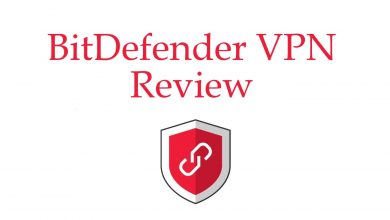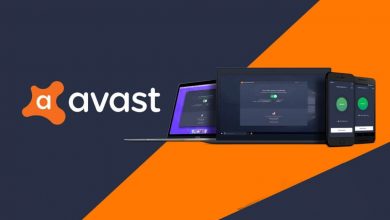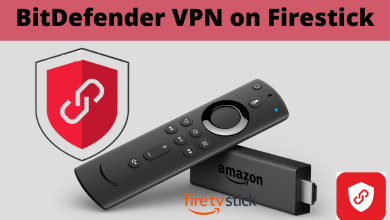In today’s digital world, the internet has become a ubiquitous presence, and almost everything we do involves the Internet in some way. College students are no exception to this trend. They use the internet for various purposes, from online classes to research papers, social networking, and entertainment.
However, many students are unaware of the risks involved when using public Wi-Fi networks. Hackers can easily intercept data transmitted over these networks, which can lead to identity theft, fraud, and other security issues. This is where Virtual Private Networks (VPNs) come into play. In this article, we will discuss the reasons why college students should use a VPN at school.

Contents
- Introduction
- What is a VPN, and how does it work?
- The Importance of Privacy and Security for college students
- Protecting your data and personal information
- Bypassing geo-restrictions and censorship
- Improving your internet speed and performance
- Avoiding bandwidth throttling
- Protecting yourself while torrenting
- Accessing online gaming services
- VPNs for remote work and online classes
- Choosing the Right VPN for college students
- Using VPN when choosing a writer’s service
- How to get started with a VPN
- Conclusion
- FAQs
- Is using a VPN legal?
- Can a VPN slow down my internet speed?
- Are all VPNs the same?
- Can a VPN protect me from malware and viruses?
- Do I need to use a VPN all the time?
Introduction
College students need to be aware of the risks involved in using public Wi-Fi networks. Hackers can easily intercept data transmitted over these networks, leading to identity theft, fraud, and other security issues. In this article, we will discuss why college students should use a VPN at school to protect their data and personal information.
What is a VPN, and how does it work?
A VPN, or Virtual Private Network, is a service that encrypts all the data transmitted over the internet. This encryption makes it almost impossible for anyone to intercept or access your data. A VPN works by creating a secure, encrypted connection between your device and a server located elsewhere on the internet. This connection makes it appear as if your device is located in a different location than it actually is.
The Importance of Privacy and Security for college students
Privacy and security are essential for college students. Students use the internet for various purposes, from research papers to social networking and entertainment. However, they are often unaware of the risks involved when using public Wi-Fi networks. Hackers can easily intercept data transmitted over these networks, leading to identity theft, fraud, and other security issues. A VPN can help protect your data and personal information from these risks.
Protecting your data and personal information
One of the most significant reasons why college students should use a VPN at school is to protect their data and personal information. When you use a VPN, all the data transmitted over the internet is encrypted. This encryption makes it almost impossible for anyone to intercept or access your data. A VPN can help protect your data from hackers, identity thieves, and other cyber criminals.
Bypassing geo-restrictions and censorship
Another reason why college students should use a VPN at school is to bypass geo-restrictions and censorship. Many websites and services are only available in certain countries or regions. A VPN can help you bypass these restrictions by making it appear as if you are located in a different location than you actually are. This can be useful for accessing content that is not available in your country or region. This essay-writing service is a great example of how a VPN can be used to access content that would otherwise be inaccessible. By connecting to the server in a different country, you can access the services offered by this essay writing service and get help with your academic papers.
Improving your internet speed and performance
Using a VPN can also improve your internet speed and performance. This is because VPNs can help reduce the amount of bandwidth throttling that occurs on public Wi-Fi networks. Bandwidth throttling is when your internet speed is intentionally slowed down by your internet service provider or network administrator. By using a VPN, your internet traffic is encrypted and hidden from your ISP or network administrator, making it more difficult for them to throttle your bandwidth. This can result in faster internet speeds and better performance.
Avoiding bandwidth throttling
Bandwidth throttling is a common practice on public Wi-Fi networks. Internet service providers and network administrators often use this technique to limit the amount of bandwidth available to each user. This can lead to slow internet speeds and poor performance, especially during peak hours. By using a VPN, your internet traffic is encrypted and hidden from your ISP or network administrator, making it more difficult for them to throttle your bandwidth. This can result in faster internet speeds and better performance.
Protecting yourself while torrenting
Torrenting is a popular activity among college students. However, it can be risky since many torrent sites are often blocked by internet service providers or network administrators. Moreover, downloading copyrighted material through torrents can lead to legal issues. By using a VPN, you can protect yourself while torrenting by encrypting your internet traffic and hiding your IP address. This can make it more difficult for your ISP or network administrator to track your online activities and potentially get you in trouble.
Accessing online gaming services
Many college students enjoy playing online games in their free time. However, some online gaming services may be restricted in certain regions or countries. By using a VPN, you can bypass these restrictions and access online gaming services from anywhere in the world. Additionally, a VPN can help reduce lag and improve your online gaming experience by providing a more stable and secure connection.
VPNs for remote work and online classes
As more and more college students are attending classes remotely and working from home, the need for secure and reliable VPNs has become increasingly important. A VPN can help protect your data and personal information while working remotely or attending online classes. It can also help you access online resources that may be restricted in your region or country.
Choosing the Right VPN for college students
When choosing a VPN for college students, there are several factors to consider. These include security, privacy, speed, and ease of use. It’s important to choose a VPN that provides strong encryption, has a no-logs policy, and offers fast and reliable speeds. Additionally, it should be easy to use and offer support for multiple devices.
Using VPN when choosing a writer’s service
Another important use case for using a VPN is when choosing a writer’s service for your academic needs. When selecting an essay writing service, you want to make sure that your personal information and payment details are secure and protected.
By using a VPN, you can add an extra layer of security and privacy to your online transactions. It also allows you to access writing services that may be blocked in your region due to government censorship or other restrictions. When you buy cheap essay online, using a VPN will help ensure that your personal information is kept secure. So if you’re a college student in need of academic writing assistance, be sure to use a VPN when selecting a writing service to ensure your personal information and data are kept safe.
How to get started with a VPN
Getting started with a VPN is easy. First, choose a VPN provider that meets your needs and sign up for a subscription plan. Next, download and install the VPN app on your device. Once installed, log in to the app and connect to a server location of your choice. That’s it! You can now enjoy a more secure and private online experience.
Conclusion
If you’re a college student, it’s important to use a VPN to protect your online privacy and security. By using a VPN, you can bypass geo-restrictions and censorship, improve internet speed and performance, avoid bandwidth throttling, protect yourself while torrenting, and access online gaming services. So don’t wait; claim your prompt library now and start using a VPN today.
FAQs
Is using a VPN legal?
Yes, using a VPN is legal in most countries. However, there are some countries where the use of VPNs is restricted or banned.
Can a VPN slow down my internet speed?
Yes, using a VPN can sometimes slow down your internet speed. However, this can depend on several factors, such as the VPN provider, server location, and your internet connection.
Are all VPNs the same?
No, all VPNs are not the same. They can differ in terms of security, privacy, speed, ease of use, and other factors.
Can a VPN protect me from malware and viruses?
No, a VPN cannot protect you from malware and viruses. You still need to use antivirus software to protect your device from these threats.
Do I need to use a VPN all the time?
No, you don’t need to use a VPN all the time. It depends on your online activities and the level of privacy and security you require. However, it’s recommended to use a VPN when connecting to public Wi-Fi networks or accessing sensitive information online.



